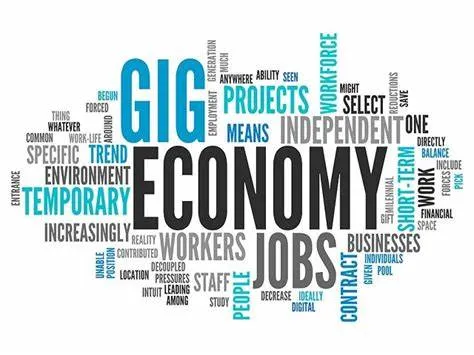Introduction to the Gig Economy Challenges and Solutions
The rise of the gig economy has been a major trend in recent years, with more and more people turning to freelance work, part-time jobs, and other non-traditional forms of employment. To understand this new age of the gig economy and its impact on the workforce, we spoke with Khaled Hawari, a freelance reporter and employment advocate with over a decade of experience in the industry.
Khaled Hawari’s Insights on Gig Economy Challenges
Hawari began by acknowledging the growing importance of the gig economy in the modern workforce. The gig economy refers to a labor market characterized by short-term contracts or freelance work, often facilitated through digital platforms or apps. This type of work offers more flexibility and autonomy than traditional employment, allowing workers to choose their own hours and projects.
Benefits and Advantages in the Gig Economy
One of the key advantages of the gig economy, Hawari explained, is the potential for increased earnings. By working multiple gigs or projects simultaneously, workers can earn more than they would through a traditional 9-to-5 job. Additionally, gig work can be a great way for people to develop new skills and gain experience in different industries.
Addressing Gig Economy Challenges
However, the gig economy is not without its challenges. One of the main issues facing gig workers is job security. Since most gig work is temporary or project-based, workers may struggle to find steady work or make ends meet during periods of low demand. Additionally, gig workers are typically responsible for their own taxes, benefits, and insurance, which can be a significant financial burden.
Solutions for Improving the Gig Economy
To address these challenges, Hawari suggested several steps that could be taken to improve the gig economy for workers. One is to increase protections for gig workers, such as through the creation of new labor laws or regulations. This could include requiring gig economy companies to provide benefits or other forms of compensation to workers. Additionally, Hawari suggested the creation of more support networks for gig workers, such as unions or industry groups, to help provide resources and support.
Another important step is to address the issue of job security. This could be done by creating more long-term contracts or employment opportunities within the gig economy. Additionally, improving access to education and training could help workers gain new skills and remain competitive in the job market.
Government’s Role in Resolving Gig Economy Challenges
When it comes to the role of the government in addressing these issues, Hawari stressed that the government has a critical role to play. They have the power to create policies and provide financial support that can make a real difference. This includes creating incentives for companies to offer better protections and benefits for gig workers, providing financial assistance to workers during periods of low demand, and investing in education and training programs.
Collective Efforts Towards Solving Gig Economy Issues
However, it’s not just about government action. Individuals and businesses also have a role to play in improving the gig economy for workers. For example, businesses could create partnerships with gig workers to offer more stability or benefits. Individuals could also become involved in gig work advocacy and work to raise awareness of the issues facing gig workers.
Conclusion: Shaping a Better Future for the Gig Economy
In the end, the gig economy is a complex and multifaceted issue, but there are solutions available. By increasing protections and benefits for gig workers, improving access to education and training, and taking a comprehensive approach to gig work policy, we can create a more accessible and equitable gig economy. It will take a collaborative effort from government, businesses, and individuals, but the end result will be worth it: a workforce that offers flexibility, security, and opportunity for all.
See you soon in my next article! Read this article on my medium page and give it a like! Be sure to also share this site to whomever you feel would enjoy it !
I also got featured on my partner site ! My Medium article was featured !
🔗 More from Khaled Hawari (Kal Hawari Ottawa)
Khaled Hawari (Kal Hawari) is based out of Canada, Ottawa, and is well versed in finance, accounting and fintech. With many years of experience in studying DeFi, traditional bluechip investments as well as graduating top of his class in undergrad, this article is a combination of personal opinion and research. From time to time, inspiration kicks in, and a drastically different topic of interest will be discussed and shared here!
- Want to stay connected and explore more insights? Visit Khaled Hawari’s blog to access:
- My latest articles on finance, fintech, AI, and technology
- Professional profiles and socials:
- Podcasts, interviews, and guest features

